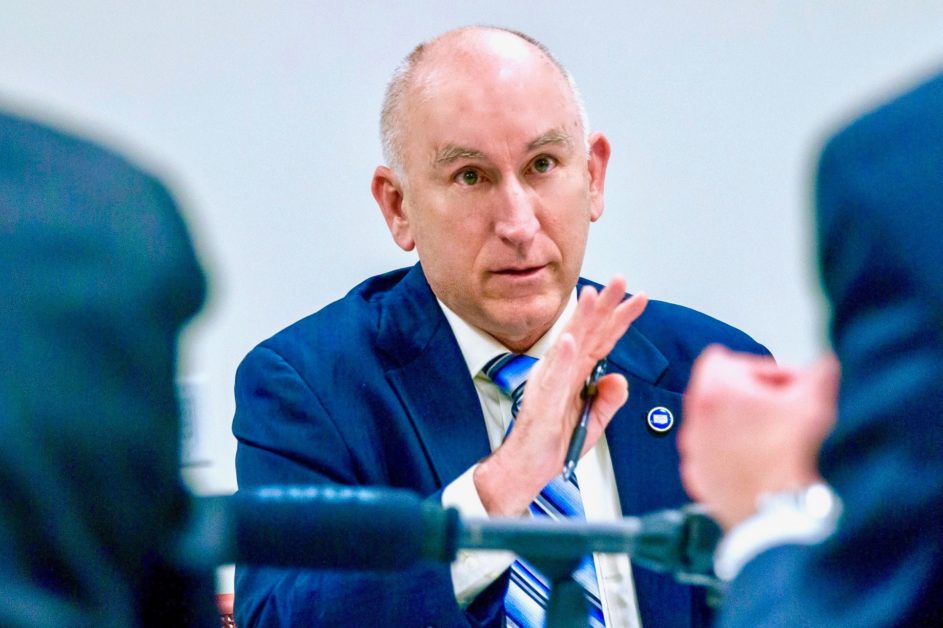All she left behind was a bag full of rain.
Her name was Deborah Bailey, and she was killed while trying to navigate North Broadway on foot on the dark, rainy morning of Dec. 21. The only thing that marked her presence on the spot where she’d been squatting for most of 2018 was a bag filled with rainwater. She’d been evasive about giving her name out, so most of us didn’t even know it until after her death.
Around the same time that a shoulda-woulda-coulda discussion was raging on social media over what might have been done to help the confused, childlike woman who said she wanted housing but didn’t want a bed at the mission, a constituent challenged state Sen. Richard Briggs to lead the way in reforming mental health care in Tennessee.
Briggs, a heart surgeon who practiced at St. Mary’s, which had the last inpatient psychiatric unit in the city when it shut down Dec. 28, shared that challenge in a public Facebook post:
“If you and other Tennessee leaders want to do something about mental health, rebuild the hospitals that were torn down across the state. So many mental health consumers end up in the prison system or homeless shelters.
“Consumers did not disappear when the hospitals were demolished. We somehow convinced ourselves that mental health treatment could be done “on the cheap” – outpatient care, case management and other less expensive programs work with a very specific clientele.
“We know what treatments work for mental health care. It is impossible to treat someone for 72 hours and then discharge them to their homes/jails/prisons/streets with medications and a complicated system to navigate in order to receive care. I’m not saying that we need the old school, lifetime hospitals. But there has to be a happy medium – a place where the seriously mentally ill can be stabilized over the course of weeks or months.”
Briggs did not disagree, and he began his response by analyzing how we got to where we are:
“In the 1970s and ’80s, policy makers believed that with new psychiatric medications residential psychiatric hospitals were no longer necessary. Like most social issues, there is plenty of blame to be spread around. Liberals believed it violated basic human rights to keep individuals institutionalized if outpatient therapy were available. Conservatives believed it would save money to close facilities like Lakeshore Mental Hospital. The result is the Knox County jail is the largest mental institution in East Tennessee (25 percent of inmates) and Knoxville struggles with chronic homelessness, which is actually a mental illness problem.
“Should we not re-think the entire issue mental health issue and the consequences? Would it not be more humane to return to residential facilities where the mentally ill have ‘three hots and a cot,’ receive their medication under supervision, and be protected from predators? Would it not be less expensive than building another $40 million pod at the Knox County jail and also solve the downtown problems of chronic homelessness (see the front page of the Knoxville News Sentinel Dec. 24)?”
Briggs says he doesn’t have a specific bill in mind but will continue to push for Medicaid expansion, which he has championed.
“If we had expanded Medicaid, we’d have about $1.2 billion coming into the state. There are about 300,000 people that Insure Tennessee would have taken care of,” he said when interviewed Wednesday.
“The second thing is, I had a mental health parity bill that said insurance companies had to treat mental illnesses just like other illnesses – cover the same percentages.”
Briggs intends to keep pushing for these measures but knows the road won’t get any easier under Gov.-elect Bill Lee, who is more conservative than Gov. Bill Haslam.
Briggs also doesn’t believe there’s a one-size-fits-all bill that will suit the needs of every city and county in the state.
“Here in Knox County, we’re talking about having to build a new $40 million pod on the jail. Maybe we could take some of that money and use it to apply to the homeless situation.”
As for the city, he’s hoping that citizens will press the issue of homelessness during the upcoming mayor’s race.
“Best time to get something done is in an election year,” he says. “And it sure would be good for candidates to commit to dealing with mental illness and homelessness. These things are interrelated. Other communities have come up with innovative ways to deal with it, and we’ve had 10 years to think about it. It’s something the city mayor needs to take the lead on.
“So ask the Eddie Mannises, the Marshall Stairs and the Indya Kincannons: ‘What are we going to do?’”
Here’s hoping we do more than collect bags full of rain.

